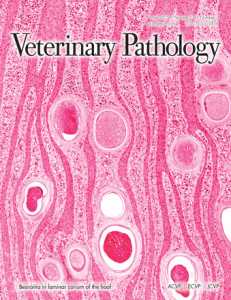 Evidence of poorly treated lab animals has led researchers to retract a 2014 article in Veterinary Pathology that explored the neurological effects of dehydration in squirrel monkeys.
Evidence of poorly treated lab animals has led researchers to retract a 2014 article in Veterinary Pathology that explored the neurological effects of dehydration in squirrel monkeys.
The study was pulled after Frederick Wang, the former director of the New England Primate Research Center, unveiled reports of a dozen squirrel monkeys that were found dehydrated and dead in their cages or euthanized between 1999 and 2011.
Wang told the Boston Globe in April that “human error” and “inadequate animal care” might have compromised the results of the study:
The researcher who led the study said the monkeys included in the final paper stopped drinking because they were sick with other illnesses, but Wang said in a statement that his experience and review of the data suggested that human error contributed.
Several of the case descriptions suggest “that these animals became severely dehydrated as a result of problems with animal care. These historical data were consistent with my assessments of significant and longstanding deficiencies in various parts of the center,” said Wang, a Harvard Medical School professor.
He said the paper could lead to “unwarranted research” because it misleadingly suggests hypernatremia — a condition commonly caused by dehydration — develops spontaneously in the species. He described the paper as a report on the “consequences of what appeared to be inadequate animal care.”
Wang shared his concern with the study’s authors and the journal, who agreed to retract the paper, “Polioencephalomalacia Secondary to Hypernatremia in Squirrel Monkeys (Saimiri sciureus).”
Here’s more from the notice:
The authors have chosen to retract the article entitled “Polioencephalomalacia Secondary to Hypernatremia in Squirrel Monkeys (Saimiri sciureus),” published in Veterinary Pathology (2014, 51(3):651-658). Further evaluation of clinical case materials which were not available to us at the time of submission and publication of this work suggests that a subset of the animals described in the paper may have had inadequate access to water, likely causing or contributing to the described hypernatremia-associated polioencephalomalacia. The conclusions of the paper, stating an association between hypernatremia and polioencephalomalacia remain valid, however with this new information we can no longer conclude that co-morbidity-associated illness was the sole cause of the hypernatremia in some of the reported animals. The condition is mentioned in a recent book as well: Fahey MA, Westmoreland SV. Nervous system Disorders of Nonhuman Primates and Research Models. In: Abee CR, Mansfield K, Tardif S, Morris T, eds. Nonhuman Primates in Biomedical Research: Diseases. New York, NY: Elsevier; 2012, 755-756.”
Jeff Caswell, the journal’s editor-in-chief and a professor at the Ontario Veterinary College, said that the authors moved to withdraw the paper after Wang contacted them.
This was information that the authors of the study were not aware of at the time of publication. We discussed this with the corresponding author, and the authors decided to retract the paper.
The taxpayer funded lab was originally opened in 1965 and administered by the Harvard Medical School until it was closed earlier this year.
The center had previously been slapped with $24,000 in fines for violations of the Animal Welfare Act. In April, it was under investigation by the U.S. Department of Agriculture for the suspicious deaths of six monkeys shortly after being shipped from the center to the Oregon Zoo.
Andrew Miller, a former veterinary researcher at the center and the study’s corresponding author, did not respond to a request for comment.
What Miller and his colleagues found in the retracted paper was unusual, according to the Globe:
The paper’s value was to alert people taking care of the animals that these monkeys were exquisitely sensitive to dehydration or other causes of high sodium in their blood and could easily suffer brain damage.
“This is just information that needs to be known to the greater public — to know that squirrel monkeys are very susceptible to this,” Miller said in an interview.
But some specialists said that in their experience, the condition is not typical.
At the Globe’s request, a research facility that maintains a large breeding colony of squirrel monkeys at the University of Texas’s MD Anderson Cancer Center searched its records for cases similar to the primate deaths at the Harvard center.
Over a period of 15 years, records showed fewer than 20 cases of adult squirrel monkeys with high sodium levels, even though the Texas center is much larger than the Harvard center — 500 squirrel monkeys in Texas, compared with just 56 at the Harvard primate center in 2012.
All the Texas cases were attributed to dehydration, and in only one of those cases did a monkey die, according to Christian Abee, director of the Michale E. Keeling Center for Comparative Medicine and Research, part of the Texas center.
They saw no evidence of the brain lesions reported on by Miller and colleagues, furthering the mystery of why the monkeys at the Harvard center died.
“I cannot comment on the specifics of the findings in this article other than to say that we have not observed this,” Abee wrote in an e-mail.
Like Retraction Watch? Consider supporting our growth. You can also follow us on Twitter, like us on Facebook, add us to your RSS reader, and sign up on our homepage for an email every time there’s a new post. Click here to review our Comments Policy.